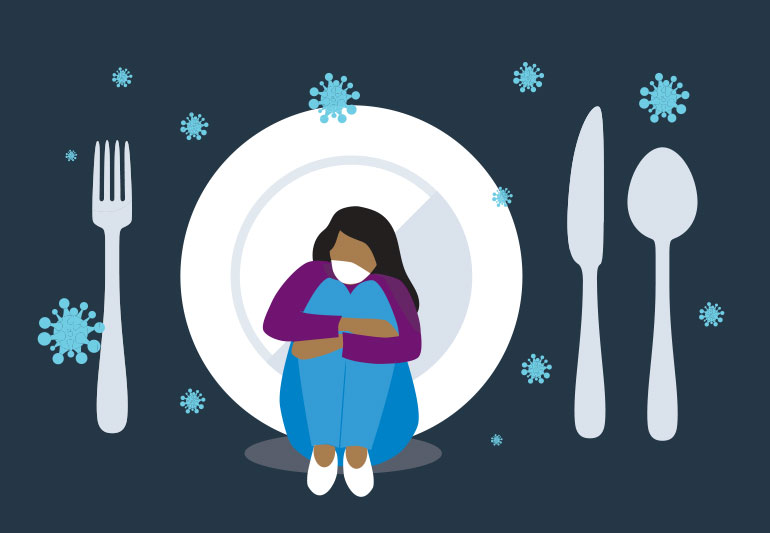
A recent study conducted by the University of Manchester, Keele University, and the University of Exeter,has revealed that there has been a significant increase in the occurrence of eating disorders and self-harming among adolescent girls in the United Kingdom during the Covid-19 pandemic, as indicated by their medical records.
The study observed that the largest surge in eating disorders and self-harming cases among teenage girls in the UK during the Covid-19 pandemic was primarily found in girls residing in affluent regions. This trend could potentially be attributed to improved accessibility to general practitioner services in these areas.
The government has stated its commitment to allocating resources towards enhancing eating disorders services with the aim of providing support to a greater number of children and young individuals.
Charitable organizations emphasize the importance of ensuring universal access to early assistance for mental health concerns, irrespective of geographical location.

‘Shockingly rise’
According to the study that has been conducted by the University of Manchester, Keele University, and the University of Exeter, there has been a gradual increase in eating disorders and self-harming cases among children and young individuals over the past few years. However, between 2020 and 2022, these incidents experienced a significant surge.
During that time frame, the study projected approximately 2,700 diagnoses of eating disorders among individuals aged 13 to 16. However, the actual observed number of diagnoses amounted to 3,862, indicating a 42% increase compared to the expected figure.
Among the same age group, it was anticipated that there would be around 6,631 instances of self-harm. However, GPs recorded a total of 9,174 cases, surpassing the predicted number by 38%.
Conducted by the University of Manchester, Keele University, and the University of Exeter, the analysis examined a comprehensive dataset of nine million patient records belonging to individuals aged 10-24 years. These records were sourced from approximately 2,000 GP practices across the United Kingdom.
Dr. Shruti Garg, a child and adolescent psychiatrist from the University of Manchester and the author of the study, described the increase as a remarkable and concerning surge. This emphasised the immediate and critical requirement to enhance early access to support services.
An eating disorder, typically anorexia or bulimia, is a mental health disorder in which individuals employ control over food as a mechanism to manage distress and navigate challenging circumstances.
According to the study, the extended exposure to social media, increased emphasis on body image, and reduced in-person interactions during the pandemic might have contributed to feelings of reduced self-esteem and psychological distress, particularly among adolescent girls.
There is a possibility that social media exposed young individuals to content that heightened the risk of developing an eating disorder.
Dr. Garg highlights that in the media, there was a significant focus on the availability and restriction of food, as well as messaging associating being overweight with increased risk for Covid.
The research also indicates that young individuals may engage in self-harm as a means of coping during periods of uncertainty.
‘Huge tautness’
Prior to the pandemic, there had already been a gradual decrease in overall mental health among teenagers and young individuals. A recent study revealed that in 2022, there were approximately five children with a likely mental disorder in each classrooms.
The government has announced plans to allocate an extra £2.3 billion annually to enhance NHS mental health services by March 2024. Additionally, they will provide £54 million per year to augment the capacity of children and young people’s mental health services.













